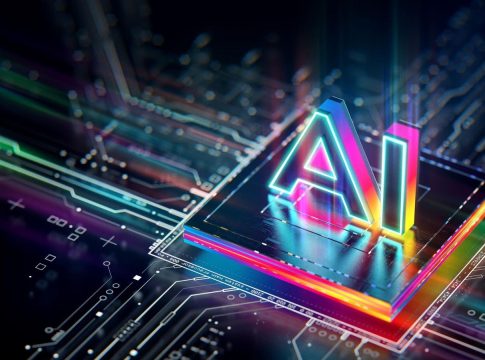Embracing the AI-First Era: A New Leadership Paradigm
In the fast-evolving landscape of artificial intelligence, a new breed of business is emerging: the AI-first company. Over the last year, startups like Anthropic, Databricks, Jasper AI, and OpenAI have disrupted traditional business models, not just through their technology, but by fundamentally changing how they operate.
Redefining the Core of Business
Unlike companies that merely test AI applications with limited pilots, AI-first organizations embed artificial intelligence into their very foundation. Here, AI is not an add-on but acts like the “central nervous system,” influencing decision-making and operational strategies across the board. This paradigm shift transforms humans from mere task executors into strategic collaborators and decision-makers who harness AI’s capabilities.
From IT to Business Leadership
In AI-centric firms, the roles within organizations shift dramatically. Traditional IT departments no longer command the AI initiative; instead, business teams leverage AI based on their domain expertise. This is crucial because the real value of AI lies in its ability to deliver precise, contextual insights—whether it’s underwriting, marketing, or supply chain management.
Amanda Luther, a transformation expert, emphasizes that AI must be woven into the daily fabric of business operations to realize its full potential. This leads to tighter integration of AI teams within various departments, fostering agile innovation and reducing bureaucratic delays.
Financial Implications and Competitive Edge
Transitioning to an AI-first model not only alters operational dynamics; it also impacts financial metrics. Companies can expect a significant uptick in technology spending—potentially by 45%—while labor expenses decrease. Smaller, more capable teams replace larger workforces, focusing on leveraging insights efficiently. In this environment, profitability grows as businesses allocate resources smarter, directing human talent toward critical thinking and creative problem-solving.
In an AI-driven economy, conventional competitive advantages shift. Traditional barriers to entry become less relevant, as businesses can scale operations swiftly or generate content at an unprecedented pace. Instead, trust, proprietary data, and top-tier talent become the new currencies for success. In a world rife with synthetic content, brands that cultivate credibility will stand out.
Cultural and Organizational Shifts
Work culture within AI-first organizations is markedly different. Operations are dynamically structured—moving away from rigid, linear processes toward adaptive, AI-led workflows. Hierarchies become flatter, empowering everyone, especially lower performers, to excel. The cultural fabric reorients itself to prioritize learning, swift adaptability, and a collaborative spirit, where AI is seen as a valuable partner rather than just a tool.
The Mindset Transformation
Crucially, embarking on the path to an AI-first future requires more than just sophisticated algorithms or copious amounts of data; it mandates a profound mindset shift among leadership. Organizations must begin by rethinking their approach to AI—not as a supplementary function but as the backbone of their strategy. The pivotal question transforms from, "How can we implement AI here?" to "What can AI do, and what should our focus be now?"
As we stand at the precipice of this AI-first era, the businesses that successfully redefine their operational models, workforce dynamics, and strategic thinking will emerge triumphant. While AI is poised to reshape entire industries, the first movers in redefining their operational philosophies will carve out their niches and thrive in this bold new landscape. The question is no longer whether AI will revolutionize sectors, but who will adapt most quickly to its transformative potential.

Writes about personal finance, side hustles, gadgets, and tech innovation.
Bio: Priya specializes in making complex financial and tech topics easy to digest, with experience in fintech and consumer reviews.

